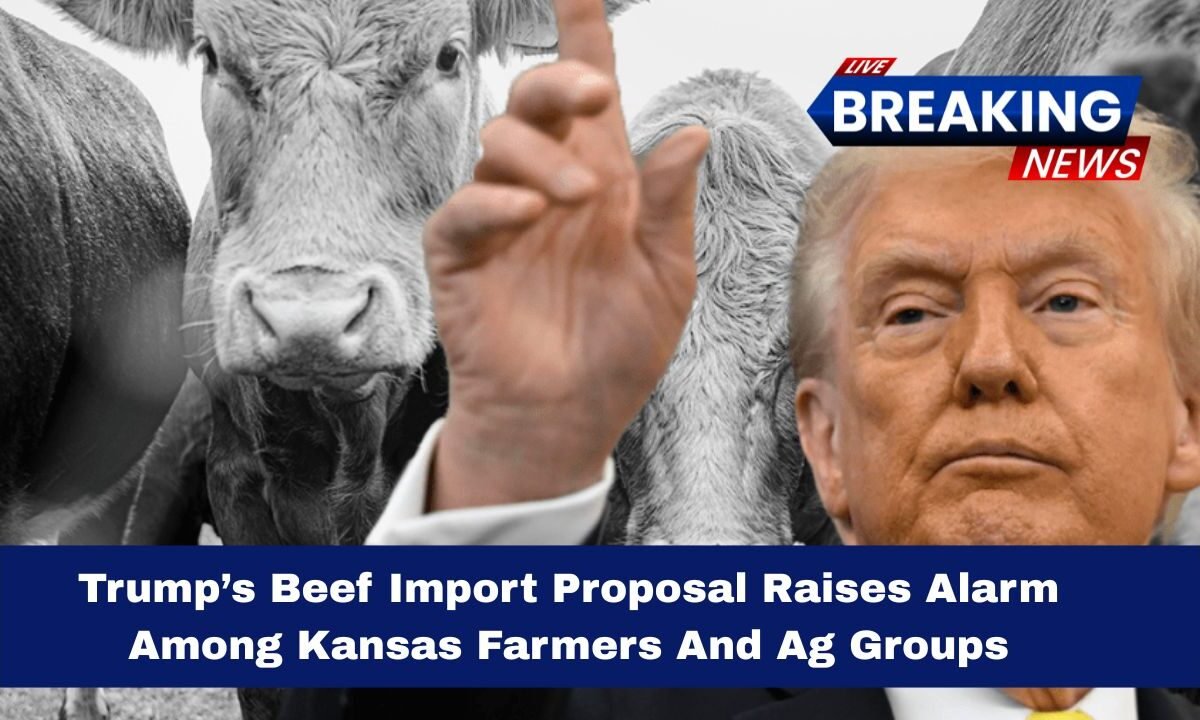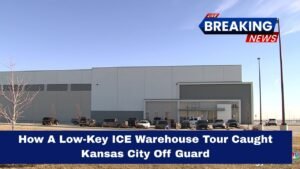President Donald Trump has proposed increasing beef imports from Argentina in an effort to ease high domestic retail beef prices.
At the same time, he urged U.S. cattle producers to “get prices down,” pointing to earlier tariffs on Brazilian beef that he says have led to strong domestic profits.
This proposal has triggered widespread concern from farmers and agricultural organizations in Kansas and beyond, who believe the move could threaten the fragile recovery of U.S. cattle markets.
Why Kansas Producers Are Worried
Kansas is a major cattle-producing state, and local ranchers are wary of what extra imports could mean for their business.
The state’s farm bureau and other farm organizations argue that importing larger volumes of foreign beef could disrupt domestic markets at a time when cattle producers are working to rebuild herds and invest in future growth. ‘
With investments in land, feedlots, and breeding programs already under pressure, the added uncertainty from policy shifts is seen as destabilizing.
Market Background and Key Figures
- The U.S. beef cow herd is at its smallest level since the early 1960s, meaning supply is tight and it takes considerable time to rebuild herds.
- Imports from Argentina currently account for only about 2 percent of total U.S. beef imports. Even a significant increase in Argentine supply is unlikely to dramatically lower retail beef prices.
- The U.S. maintains a tariff-rate quota (TRQ) for Argentine beef of approximately 20,000 metric tons at preferential duty levels. Imports beyond that face substantial duties, and recent proposals would increase these duties further.
- Imports from Brazil are already subject to high tariffs (up to around 50 percent), and other countries face constraints such as pest-related rules, meaning available alternative supplies are limited.
- Kansas agricultural leaders and economists caution that the policy signal of increased imports could create reluctance among producers to invest in expansion now, when conditions are beginning to improve.
Potential Impacts on Kansas Agriculture
Short Term
The announcement alone has already put pressure on feeder cattle futures, reflecting investor concern that domestic cattle prices could soften.
Kansas feedlot operators and livestock auction barns may experience weaker bids if buyers anticipate increased competition from imported beef.
Medium Term
If Argentine imports rise meaningfully, ground-beef segment prices could see modest relief. However, high-value cuts (steaks, premium beef) are unlikely to see large price drops.
Thus, the benefit to consumers is limited, while domestic producers may bear most of the downside.
Long Term
Continued signals of increased imports may discourage U.S. producers from retaining heifers and rebuilding the herd, undermining a recovery path just when drought-related losses and high input costs had already delayed expansion.
For Kansas, this means slower rebuild of cow-calf herds, fewer investments in feedlots and processing, and less growth in cattle-industry infrastructure.
Quick Facts
| Metric / Policy | Current Situation / Proposal | Why It Matters |
|---|---|---|
| U.S. beef cow herd size | Smallest since early 1960s | Tight supply supports high prices and slow rebuild time |
| Argentina’s share of U.S. imports | About 2 % | Limited potential for large price impact |
| Tariff-rate quota (TRQ) for Argentina | ~20,000 metric tons at low duty levels | Imports beyond that face much higher duties |
| Tariff on Brazilian beef | Up to ~50 % | Restricts an alternative source of imported beef |
| Kansas producer stance | Strong opposition to import expansion | Reflects concern for domestic market stability |
Political and Policy Considerations
President Trump’s argument is that domestic ranchers have done well under tariff protections, but rising consumer beef prices now demand action.
But Kansas producers counter that the proposed imports undercut “America First” messaging and threaten long-term resilience of the cattle industry.
Rather than relying on foreign beef, many are calling for stronger support for domestic herd rebuilding, range and pasture recovery, and processing capacity growth.
The proposal to significantly increase beef imports from Argentina may seem like a quick fix to high retail prices, but for Kansas ranchers and ag organizations it signals risk to a recovering industry.
With the U.S. herd at a multi-decade low and investment in expansion already challenging, the policy move is viewed as potentially disruptive rather than helpful.
Real, sustainable relief in beef markets for both consumers and producers may come only through boosting domestic supply—via herd rebuilding, improved feeding and processing infrastructure—not through import volume shifts alone.




